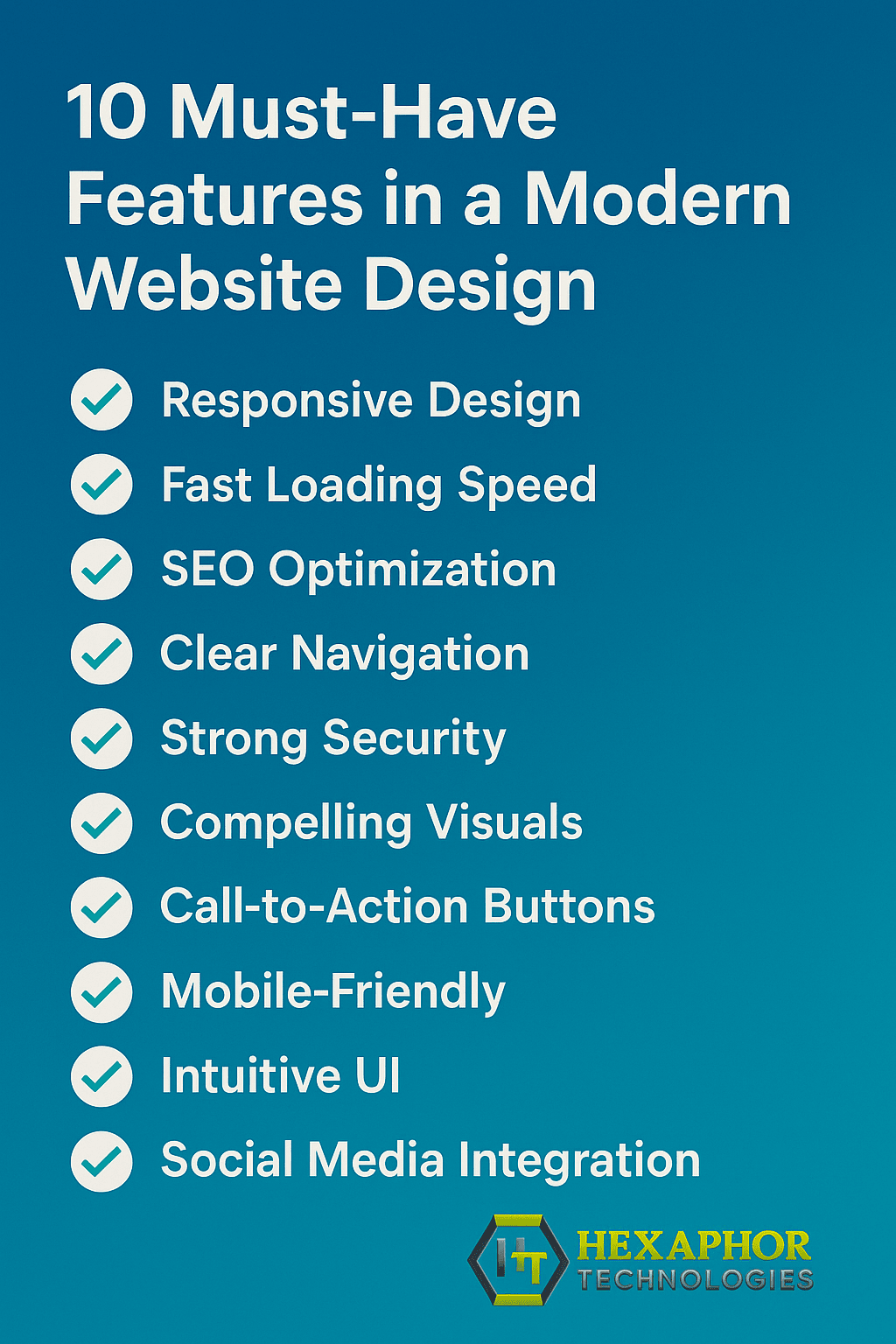
In today's digital landscape, your website isn't just your online presence—it's your first impression, sales tool, and often your customer service desk. With evolving user expectations and fierce competition, having a modern, responsive, and functional website is no longer optional—it's essential.
Here's a look at the top 10 features every modern website must have in 2025 to stay relevant, visible, and user-friendly:
Over 60% of users browse from mobile devices. If your website doesn't adapt to screen sizes, you're losing traffic and conversions. A mobile-responsive design ensures a seamless experience across devices, helping reduce bounce rates and improving SEO rankings.
A modern website should load in under 3 seconds. Speed impacts everything—user experience, SEO, and even sales. Use optimized images, CDN services, and minified code to ensure snappy performance.
Intuitive navigation is key. A modern website uses logical menus, search functionality, and breadcrumb trails to guide users efficiently, reducing frustration and increasing engagement.
From meta tags and header structure to schema markup and mobile-friendliness, your website must be built with SEO in mind. It’s the only way to rank organically and reach your target audience effectively.
Each page should direct the user to a goal—be it “Buy Now,” “Get a Quote,” or “Download.” Strategic placement and contrast-rich CTA buttons can boost conversions by up to 80%.
Modern design is clean, minimal, and branded. Use high-quality graphics, white space, interactive elements, and bold typography to create visual impact without overwhelming the user.
Whether it’s WordPress, Drupal, or a custom CMS, having backend control allows your team to update content, manage blogs, and scale your site without relying on developers.
With increasing cyber threats, modern websites must use HTTPS, implement firewalls, and use CAPTCHA on forms. Especially for ecommerce or lead-gen sites, security boosts both user trust and compliance.
Whether it's CRM, email marketing (like Mailchimp), chatbots, or analytics tools like Google Analytics 4, seamless integrations are key to creating a connected and automated business ecosystem.
Accessibility is no longer just ethical—it’s a legal requirement in many regions. Use alt text, keyboard navigation, and contrast ratios to make your website usable by people with disabilities.
A: Mobile responsiveness is arguably the most crucial feature today due to the growing number of mobile users.
A: On average, every 2-3 years, or whenever there's a major change in brand, goals, or technology.
A: While not mandatory, CMS platforms make content management easier for most business websites.
A: Tools like Google PageSpeed Insights, GTmetrix, and Pingdom help you analyze and improve loading time.
A modern website isn't just about looking good—it's about performing well, delivering value, and driving conversions. Whether you're a startup, small business, or enterprise, investing in these must-have features ensures long-term digital success.
At Hexaphor Technologies, we specialize in creating modern, adaptive, and high-performing websites tailored to your business needs.